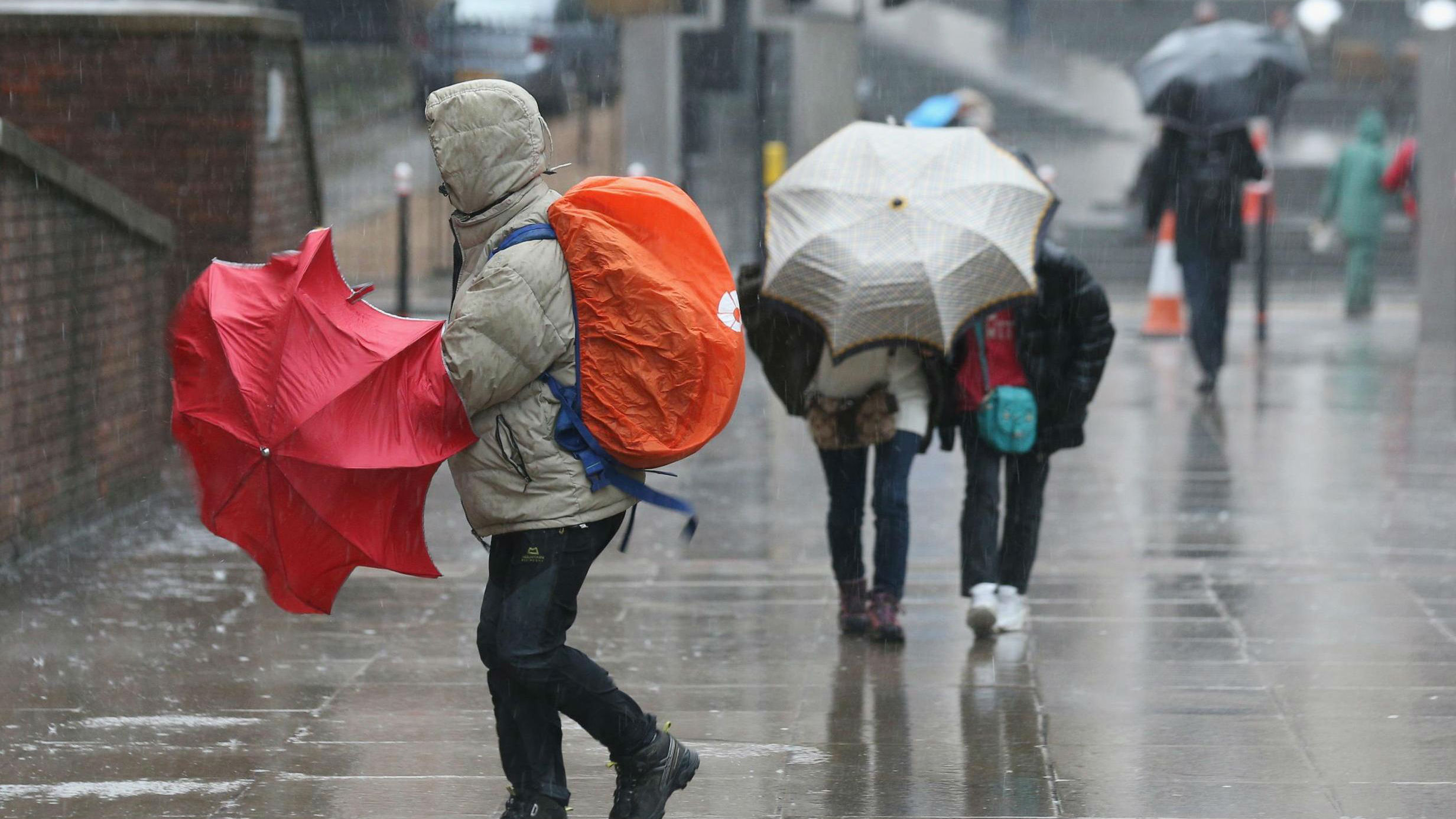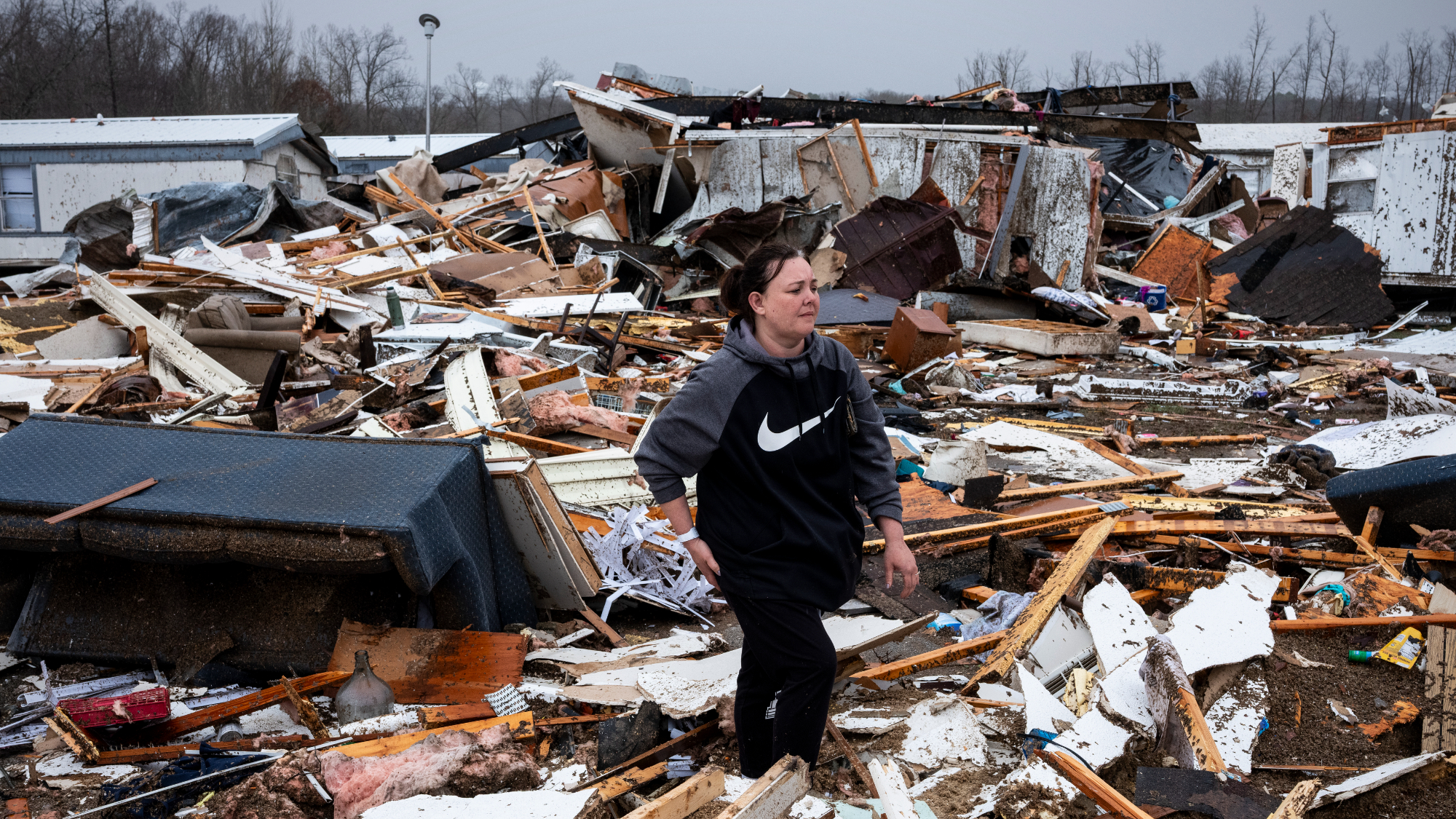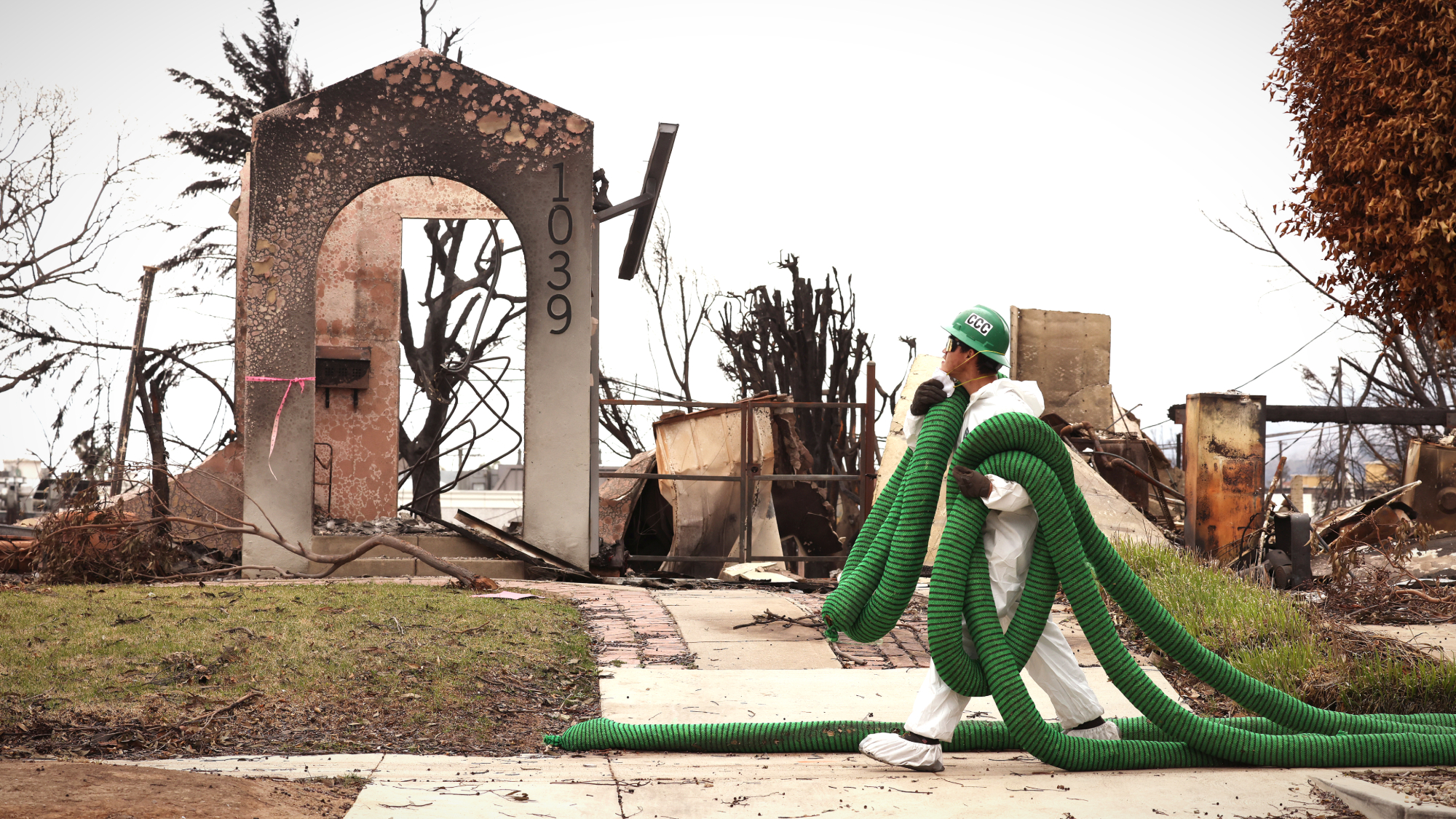Storm Doris: 12 amber alerts issued as UK blasted by gales
Winds of more than 80mph hit the country, forcing airports to cancel flights while trains have a 50mph speed limit

A free daily email with the biggest news stories of the day – and the best features from TheWeek.com
You are now subscribed
Your newsletter sign-up was successful
The UK is battening down the hatches for Storm Doris, which is set to bring a day of powerful gales and torrential rain to large parts of the country.
Doris, the fourth named storm of 2016/2017, descended overnight, whipping up winds of almost 90mph on the west coast of Ireland as it drifted towards the UK.
Gales of more than 70mph were recorded when the storm reached Wales, with no signs of letting up.
The Week
Escape your echo chamber. Get the facts behind the news, plus analysis from multiple perspectives.

Sign up for The Week's Free Newsletters
From our morning news briefing to a weekly Good News Newsletter, get the best of The Week delivered directly to your inbox.
From our morning news briefing to a weekly Good News Newsletter, get the best of The Week delivered directly to your inbox.
"We have got a fairly active area of low pressure coming in from the Atlantic," Met Office forecaster Emma Sharples told the Daily Telegraph. "It is strengthening as it moves eastwards to the UK."
Meteorologists warned yesterday that Doris could be powerful enough to "damage buildings and send debris flying when it hits the mainland".
In Ireland, 46,000 people were left without power in the wake of the storm, the Irish Mirror reports, and similar disruptions are expected in the UK.
As of this morning, the Met Office has issued a dozen amber warnings, affecting parts of northern England, East Anglia, north Wales and the Midlands, with a snow warning for many parts of Scotland, with snowfall of up to six inches in the Highlands.
A free daily email with the biggest news stories of the day – and the best features from TheWeek.com
Drivers are advised to avoid some stretches of road in northern England and the Midlands, where strong winds and heavy rain could present particularly challenging driving conditions.
Rail passengers should also be prepared for delays and cancellations as a safety speed limit of 50mph is imposed on some services.
Travellers flying from Heathrow today are also advised to check the status of their flight. More than a dozen domestic journeys have been cancelled and Irish national airline Aer Lingus has suspended service from the UK in anticipation of strong winds.
-
 5 blacked out cartoons about the Epstein file redactions
5 blacked out cartoons about the Epstein file redactionsCartoons Artists take on hidden identities, a censored presidential seal, and more
-
 How Democrats are turning DOJ lemons into partisan lemonade
How Democrats are turning DOJ lemons into partisan lemonadeTODAY’S BIG QUESTION As the Trump administration continues to try — and fail — at indicting its political enemies, Democratic lawmakers have begun seizing the moment for themselves
-
 ICE’s new targets post-Minnesota retreat
ICE’s new targets post-Minnesota retreatIn the Spotlight Several cities are reportedly on ICE’s list for immigration crackdowns
-
 Earth's seasons are out of whack
Earth's seasons are out of whackUnder the radar The seasons' unfixed nature in different regions of the planet may have impacted biodiversity and evolution
-
 When does autumn begin?
When does autumn begin?The Explainer The UK is experiencing a 'false autumn', as climate change shifts seasonal weather patterns
-
 Europe's heatwave: the new front line of climate change
Europe's heatwave: the new front line of climate changeIn the Spotlight How will the continent adapt to 'bearing the brunt of climate change'?
-
 Why the weather keeps getting 'stuck'
Why the weather keeps getting 'stuck'In the Spotlight Record hot and dry spring caused by 'blocked' area of high pressure above the UK
-
 Severe storms kill dozens across central US
Severe storms kill dozens across central USSpeed Read At least 40 people were killed over the weekend by tornadoes, wildfires and dust storms
-
 Rain helps Los Angeles wildfires, risks mudslides
Rain helps Los Angeles wildfires, risks mudslidesSpeed Read The weather provided relief for crews working to contain wildfires, though rain over a burn area ups the chances of flooding and mudslides
-
 Fast-spreading Los Angeles wildfires spark panic
Fast-spreading Los Angeles wildfires spark panicSpeed Read About 30,000 people were under an evacuation order as the inferno spread
-
 Cuba roiled by island-wide blackouts, Hurricane Oscar
Cuba roiled by island-wide blackouts, Hurricane OscarSpeed Read The country's power grid collapsed for the fourth time in just two days